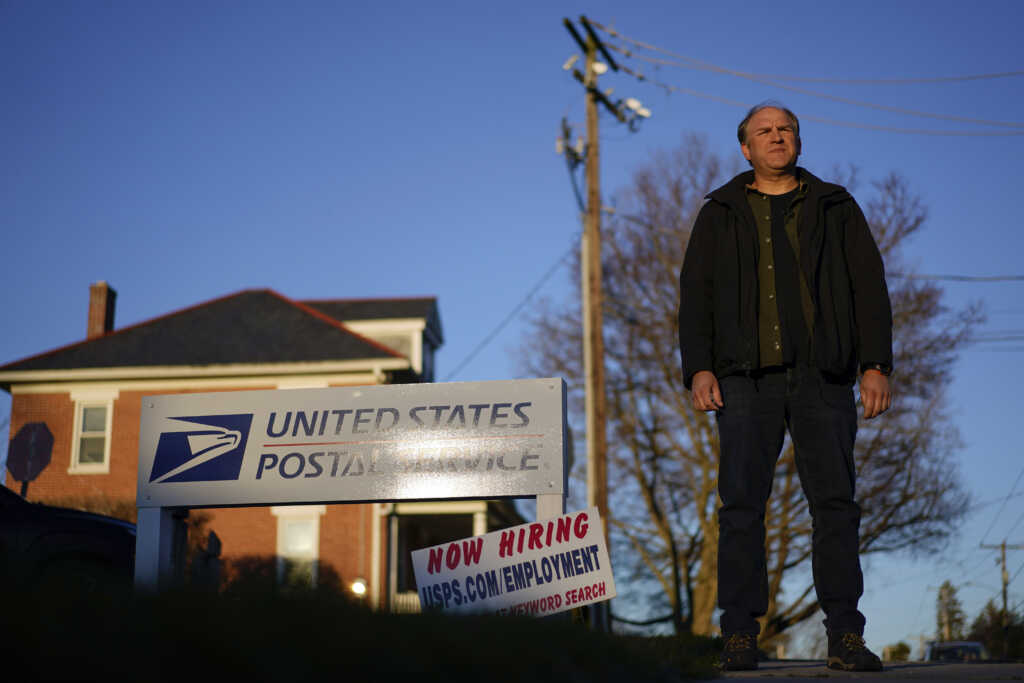An attorney whose legal firm is handling yet another landmark religious freedom case before the U.S. Supreme Court said the First Amendment stakes in the battle are quite high for all Americans.
Listen to the latest episode of CBN’s Quick Start podcast 👇
Jeremy Dys, senior counsel for First Liberty, a conservative law firm, said the conclusion of Groff v. DeJoy could result in increased religious freedom protections in the workplace for Christians and religious minorities, in particular.
Oral arguments in the case, which centers on former postal worker Gerald Groff, were heard by the Supreme Court last month. Groff sued the U.S. Postal Service after being required to work Sundays, a day he deems holy due to his Christian faith.
When accommodations became problematic, Groff reportedly felt he needed to resign.
“It’s important to remember where Gerald comes from. Gerald is in Lancaster County, Pennsylvania — that area of the country really known for its influence from the Mennonite and Amish traditions,” Dys said. “That’s where he grew up, and so, when it came time to find a career, he was trying to find one that would honor the fourth of the 10 Commandments — to honor the Lord’s day by keeping it holy.”
This idea was central to Groff’s upbringing and when the Postal Service hired him, mail wasn’t being delivered on Sundays; it seemed like the perfect position. But Dys said that changed when Amazon purchased a contract with the USPS to require postal delivery of Amazon packages on Sundays.
“Gerald said, ‘You know, this is going to present a real issue. I told you before, I honor the Sabbath day by keeping it holy. I’ve got to honor the entire Lord’s day,'” Dys recounted.
Dys said the USPS offered two compromises to try and work around the issue. One was the suggestion Groff go to church in the morning and come to work in the afternoon; this still didn’t solve Groff’s belief he must honor the entirety of the day.
“The second thing that they offered was [to] just … take a different Sabbath day,” Dys said, expressing his alarm over the suggestion to upend the longstanding tradition of Sunday Sabbaths. “It shows just how kind of culturally illiterate the United States Postal Service must have been and certainly how tone deaf they were to the religious needs of its employees that’s why they put Gerald at the untenable choice of having to choose between his faith and his career a choice.”
Lower courts had thus far sided with the USPS in the dispute, which Dys said is the result of a “very pro-employer view of law” dominating most cases for nearly 50 years following the Trans World Airlines, Inc. v. Hardison case in the late 1970s.
“The court interpreted the Title VII Portion of the Civil Rights Act that governs the issue of accommodating religious employees,” Dys said. “And that court said that what Title VII says is that an employer has to accommodate the religious beliefs of an employee unless they can show that it causes an undue hardship to the employer’s business.”
He continued, “It said that, if it’s a de minimis cost to the employer — meaning, a very little, tiny bit of trifling — then that’s enough to release the employer from having to accommodate the employee, and so every court in the nation has adopted that standard.”
Dys said this has resulted in decades of cases favoring employers over staff — but Groff’s case could change this dynamic now that it’s before the Supreme Court.
“I think we’re going to see something different,” he speculated of Groff’s case. “I hope that difference is going to be something that upholds the idea that employees ought to be able to go to work as people of faith.”
As for Groff’s case, more specifically, Dys pondered why the USPS — one of the largest employers in the world — couldn’t find another person to cover Groff’s spot on the job. He also wondered if other religious groups might have faced the same crackdowns.
“Would they have made the same suggestion to other religious minorities?” he pondered.
As CBN News previously reported, the Biden administration argued Groff’s absences created hardship for the USPS.
“His absences created direct, concrete burdens on other carriers who had to stay on their shifts longer to get the mail delivered,” U.S. Solicitor-General Elizabeth Prelogar argued before the court. “That caused problems with the timely delivery of mail and it actually produced employee retention problems with one carrier quitting, another carrier quitting, and another filing a union grievance.”
It’s unclear what the Supreme Court will decide, though Dys responded to reports the justices appeared during recent oral arguments to be sympathetic toward Groff and potentially remedy the issue in his favor.
“I think the justices are trying to find a way to get back to what Title VII actually requires,” he said. “So, in June, when we get this opinion … I think we’re going to see the court getting rid of that de minimis standard; they know it’s unworkable.”
Dys added, “They’re trying to figure out what goes back in its place but whatever is going to go back in its place, it’s going to mean more freedom for religious employees in this country rather than less.”
A decision in Groff v. DeJoy is expected before the end of June.
***As the number of voices facing big-tech censorship continues to grow, please sign up for Faithwire’s daily newsletter and download the CBN News app, developed by our parent company, to stay up-to-date with the latest news from a distinctly Christian perspective.***



